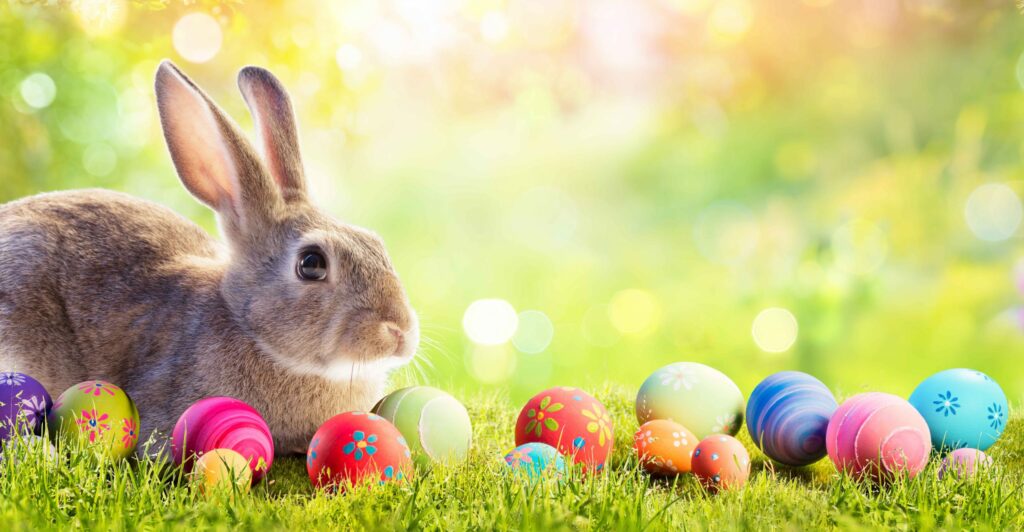Take this Easter Quiz to test your knowledge. We update the quiz regularly and it’s the most accurate among the other quizzes.
Easter, with its colorful eggs, succulent hams, and joyful baskets, is approaching faster than you think. This year’s Christian holiday falls on April 4th. While the primary tale may be familiar, there is still much to learn about the particular rituals associated with this special Sunday. Between the beautiful bunny rabbits and copious amounts of chocolate, the holiday has developed over the years with a slew of new and old rituals.
Take a minute to study the rich history of this occasion, including its distinctive dishes, superstitions, and symbolism, before you sit down for a nice brunch or occupy the youngsters with some Easter crafts. Then, as a finishing touch, impress your family and friends with some Easter knowledge that reveals the little-known roots of your favorite rituals.
Easter baskets hold great meaning.
The woven containers symbolize nests and fresh life, especially when loaded with eggs. They’re also a really practical way to collect treats on your Easter egg hunt.
There’s a reason why you’re probably eating ham for Easter supper.
Because the event has its roots in Jewish Passover, most early Easter celebrants would have eaten lamb for this particular occasion. However, because of the time of the festival, most American Easter dinners now include ham. Hams cured over the winter months would have been ready to serve in the early spring years ago. Also, you must try to play this Easter Quiz.
Easter Quiz
Lilies for Easter are a relatively modern ritual.
These lovely blooms originated in Japan and made their way to England in the late 18th century. The United States only became aware of the pattern after World War I. The transformation of dormant bulbs into exquisite blossoms evokes hope and rebirth, two significant elements for the day.
Easter eggs were given a medieval touch.
Do you think Easter egg hunts are strange? Listen to this medieval game for kids: The priest would give one of the choir boys a hard-boiled egg, which the boys would pass around until the clock struck midnight, at which point whoever was holding it got to eat it. Sounds… amusing?
Easter attire was once thought to be auspicious.
An old myth claimed that wearing new clothes on Easter would bring you good luck for the rest of the year. Indeed, it was popularly assumed that upper-class New Yorkers would physically strut their stuff as they exited magnificent and well-to-do Fifth Avenue churches after mass. This tradition became the foundation for New York’s modern, and notably less aristocratic, Easter Parade and Easter Bonnet Festival.
Easter eggs have been around since before Easter.
There is evidence that Easter eggs originated in Medieval Europe, and Christians may not have been the first to begin the ritual of presenting eggs — a symbol of fertility and rebirth in many civilizations.
Eostre, the Anglo-Saxon deity, inspired the holiday’s name.
Easter, according to scholars, was called after a celebration commemorating Eostre and the arrival of spring. The hare and the egg are considered to have been her spiritual symbols.
About the quiz
Eggs are colored to represent Jesus Christ’s blood.
At least, that could be one of the causes, which can be traced back to early Christians in Mesopotamia. There is no specific reason for the tradition, however, there are various possibilities.
Only 12 states observe Good Friday as a holiday.
Good Friday, which occurs two days before Easter Sunday, remembers Jesus Christ’s crucifixion, but it is not a federal holiday. Closures affect residents in several states, including New Jersey, North Carolina, and Tennessee.
In 2020, 77% of American adults observed the holiday.
According to the National Retail Federation, over half of those preferred to honor the event with a holiday meal, while a third chose to visit family and friends digitally.
Germany is responsible for the bunny.
The Easter rabbit is claimed to have originated in Germany during the Middle Ages, with the first written reference of this practice dating back to the 16th century. In the 1700s, Dutch settlers in Pennsylvania introduced the bunny to the United States.
For more trivia quizzes check this: Cell Parts And Functions Quiz




